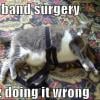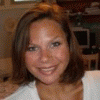Search the Community
Showing results for 'alcohol'.
Found 17,501 results
-


Do You Use Alcohol after Weight Loss Surgery?
WLSResources/ClothingExch replied to Alex Brecher's topic in Food and Nutrition
I never stopped drinking. Alcohol has never been particularly important to me and, when I feel like a drink or two, sometimes three, I don't hesitate. This includes wine, cocktails and a basic, mixed drink. The occasion and the company determine the quantity. My limit is two consecutive days. -


Do You Use Alcohol after Weight Loss Surgery?
QuilterGal replied to Alex Brecher's topic in Food and Nutrition
My body reacts much differently to alcohol post-op. I get a quick buzz but it goes away very fast. I've never been hung over since I had surgery. -


The "Idiot's" Guide to Easy Answers for the Nosy People in our Lives.
Miaoreo replied to LipstickLady's topic in Rants & Raves
OK Lipstick Lady... here's one.. I did not tell my husband's family. They live 1000 miles away. However my husband told his mother. Now this lady has never had a weight problem in her life.. she is simply too self disciplined and full of nervous engergy to become over weight, and I am sure, thinks anyone else should be able to control their own weight also. She is also very OPINIONATED and has on more that one occasion told me what she thinks... Once told me I was an alcoholic.( I am not). I wont see her until next Summer, a full YEAR after my surgery. And I avoid talking to her on the phone. However my husband calls her a couple times a month and I know they talk about me. He will even holler at me " HEY, how much have you lost?" to tell her. And Yes I have told him not to discuss me with her. I am a pretty private person, and I don't discuss my health with my mother in law. But it will come up when we go there. She won't leave it alone, I know her. She LIVES to Gossip about people. What can I say to this 80 year old woman? I can't be rude, but I do not want to be the topic of conversation while we are there. HELP! -
ghost, i nearly cried when i read about your aversion to physical affection with your mom. Im going through bigtime mom issues right now. I have a very strong aversion to my mother. i love part of her on one hand, but on the other hand, if i never spoke to her or saw her again i would be very okay with that. my mom is an alcoholic and there are big dramatic horrible secrets going all the way back to thirteen for me that NO ONE in my family will address. I have tried and its useless. Now she needs me. The one time in her life where she genuinely needs me, and she wants to pretend we are close and that shes always been this close loving mother...and i just cant do it. part of me wants to. if she was TRYING to quit drinking, i think i really could trust it and give it another shot..and yeah, ive told her this directly at various times...where she promises the changes..and anymore not even fifteen minutes passes before shes forgot everything she laid out there and goes right back to how she lives. My heart goes out to you. I hope that one way or another you get some peace with that issue, even if its reassurance that you would never have to feighn (spellin?) physical affection if you dont genuinely want to show it, or to just have the ability to enjoy the mutual affection. I hope it works out in any case. i dont know where my relationship with mine is going to go. Im willing to just let it go at this point. I just dont have it in me to give.
-


When is it a food addiction, and when is it just overeating?
ouroborous replied to ouroborous's topic in Gastric Sleeve Surgery Forums
Interesting. This doesn't sound like my experience at all. I have consumed various things in my life -- food, alcohol, drugs -- that were very unhealthy for me, but there was nothing that I couldn't "put down" and nothing that I ever "obsessed over." Mostly I have bad habits and get into trouble when I'm bored! Thanks for the input. It's always interesting to me to understand how other people "experience life" (if that makes any sense). -


GALS who started their journey over 300 lb+<br /> +
BarrySue replied to Frustr8's topic in The Gals' Room
Love this topic! Started at 353 in July 2015, lost my first 100 lbs in six months, got down to around 185 in a year and just sort of went back to eating junk. I really liked how I looked and carried my weight well, but the pounds began to creep back on. In May, I found myself back at 215 and VERY unhappy about it. Been back on the high protein/low carb/no sugar thing since then, and now I'm actually lower than when I originally stopped losing! Only 29 lbs to go until I'm in the healthy BMI range, but I've got hips/thighs/boobs and wear a size 8/10, so I feel pretty good. Go on 12 mile hikes every weekend, currently training for 5k. It's so weird considering I've been above the 300 lb mark my entire adult life! Just make sure you connect with people who live a healthy life or do activities with you! The hardest thing was having to distance myself from people who constantly pushed food/alcohol/unhealthy stuff despite my protests, and folks who ONLY wanted to hang out when food was involved. Get you some fitness buddies and you'll be good! -


June 2022 surgery buddies
ShianRaineDrop replied to Jessica1024's topic in Gastric Sleeve Surgery Forums
Did your surgeon give you anything for nausea? Thankfully mine did and it has been a life saver. I had to take it regularly the first week but I don't seem to have to take it as much this week (WK 2). I take it at the first sign on nausea and it has allowed me to eat some cream of mushroom soup strained which helped a lot in terms of energy. I just learned about sugar alcohols too and plan today to severely reduce my intake of them because apparently, they can cause gassy and bloaty gut, nausea and diarrhea! I had a horrible first week because of that so I'm hoping that reducing them will help reduce some of those symptoms! That gas pain was the WORST part of the entire surgery process for me. It was worse than any pain I've experienced in my life but thankfully, my surgeon was available on my first full day home and suggested something that worked to start moving the gas around and within 24 hrs I was starting to feel better! I hadn't felt the gas move at all from the minute I got out of surgery, including no burping or flatulence to help get it out so his recommendation was a blessing! -


July sleevers please check in..
crystalmendza replied to shannyd4's topic in Gastric Sleeve Surgery Forums
I was told no alcohol for a year -
Tssiemer I didn't have staples so I can't relate to that. But my physical recovery was a breeze compared to the mental recovery. Still a struggle almost a year out! Don't be worried about messing the process up and be denied. You will be more upset with yourself not trying if you gave up. Constipation can sometimes be an issue for me but only when I take ibuprofen. I was approved and instructed to take it while on my cycle because mine got worse with loosing the weight. So I take them very limited but when i do take them... Constipation strikes. But its usually fairly easy to take something and get it moving again. And as far as the easy way out.... You tell whomever to go to hell who says that! Sorry to be blunt but seriously.... This is not easy! I work so hard daily at this. Harder than I ever have!! I don't tolerate anyone telling me that because I know the dedication and time I put into this. I contemplate everything I eat, get up at 4:45am to work out before work, count my water all day long, gave up alcohol. Its not easy but still the best decision I ever made! I can't ease all your fears but I'm always here to try and talk and be honest about the process.
-
Current Mood: Festive I think I have gained 4 lbs since the beginning of December. I say "I think" because it was 3 lbs last time I got on the scale and my behavior has actually gotten worse rather than better so I haven't gotten back on. I entered the holiday season with too much bravado and confidence for a fat person trying to lose weight. I thought, "I can't eat too much - I have some restriction - so I'll be ok." Not only did I make some seriously bad choices about what food to eat, but I also drank, and drank, and drank without regard to the calories. And, my habits suffered as well. I took the bus instead of walking because walking with a hangover was painful. I drank fluids with my meals because I was dehydrated from the wine the night before. I felt starved....And so on. I do not have a drinking problem. I do have problems with self control related directly to food -- thus the lap band decision. But, just as when I quit smoking, I find myself replacing one bad habit with another - this time it's red wine. I apparently forgot that the health benefits of one glass of red wine per day DO NOT extend to 4 glasses twice a week. The calories from 4 glasses, which now make me quite tipsy because of the lower volume of food, add up and fast. And, then when I have a few drinks, I feel a bit peckish and need a snack when I'm not supposed to be eating. It's a vicious cycle so, my new year's resolution is to avoid drinking alcohol. I'm not saying I won't enjoy a day-ending glass of red as a wind down, I just have to get out the recent holiday habit of downing booze at parties and dinners because I'm not eating. So, tomorrow evening, Christmas Eve, I have already invited over friends and family for mulled wine and cheese! Oh well, hindsight is 20/20 and this was my husband's idea more than 2 weeks ago when I still thought I had some control. We'll see how I do. In the meantime, my jeans are looser, I walked miles in the snow over the weekend and I actually got down in the snow with my kid to play and was able to get back up without a forklift. The scale may not be moving but I do feel better overall. January is my buckle down month...and then February...and then March, etc, etc, etc! Hope everyone has a Merry Christmas and successfully avoids the more caloric niceties of the season. Best of luck and Happy New Year to all! B
-
Current Mood: Festive :cursing: I think I have gained 4 lbs since the beginning of December. I say "I think" because it was 3 lbs last time I got on the scale and my behavior has actually gotten worse rather than better so I haven't gotten back on. I entered the holiday season with too much bravado and confidence for a fat person trying to lose weight. I thought, "I can't eat too much - I have some restriction - so I'll be ok." Not only did I make some seriously bad choices about what food to eat, but I also drank, and drank, and drank without regard to the calories. And, my habits suffered as well. I took the bus instead of walking because walking with a hangover was painful. I drank fluids with my meals because I was dehydrated from the wine the night before. I felt starved....And so on. I do not have a drinking problem. I do have problems with self control related directly to food -- thus the lap band decision. But, just as when I quit smoking, I find myself replacing one bad habit with another - this time it's red wine. I apparently forgot that the health benefits of one glass of red wine per day DO NOT extend to 4 glasses twice a week. The calories from 4 glasses, which now make me quite tipsy because of the lower volume of food, add up and fast. And, then when I have a few drinks, I feel a bit peckish and need a snack when I'm not supposed to be eating. It's a vicious cycle so, my new year's resolution is to avoid drinking alcohol. I'm not saying I won't enjoy a day-ending glass of red as a wind down, I just have to get out the recent holiday habit of downing booze at parties and dinners because I'm not eating. So, tomorrow evening, Christmas Eve, I have already invited over friends and family for mulled wine and cheese! Oh well, hindsight is 20/20 and this was my husband's idea more than 2 weeks ago when I still thought I had some control. We'll see how I do. In the meantime, my jeans are looser, I walked miles in the snow over the weekend and I actually got down in the snow with my kid to play and was able to get back up without a forklift. The scale may not be moving but I do feel better overall. January is my buckle down month...and then February...and then March, etc, etc, etc! Hope everyone has a Merry Christmas and successfully avoids the more caloric niceties of the season. Best of luck and Happy New Year to all! B
-
Current Mood: Hopeful:thumbup: My last blog entry was about how much I drank (and ate) over the holidays and the fear of getting on the scale. After New Year's I went back on the program and finally screwed up the courage to get on the scale on Monday, 1/4. As the title says, it was some very unexpected good news! I'd previously suspected about a 4 pound gain but I was wrong. Instead, I have lost about 15 pounds since my fill on 12/3. Wow! 15 pounds over the holidays and I wasn't actually following the plan very closely. I still think I eat too much in one sitting but I definitely feel some restriction and if I eat too fast (usually bread) I get a horrible pain that takes a minute or two to go away. At least when that happens, I have to stop eating. For the new year, my resolution is to make better food choices, avoid too much alcohol and finally get to the YMCA to sign up for the free (for members) personal fitness program. Other thoughts: 1) I got back in touch with a friend from 25 years ago via Facebook. Hopefully by the time I see her again,I will weigh less than I did in 1984. 2) My skin is squishy already. Man am I going to need some serious plastic surgery after this. 3) I love cooking and am considering it as a new career which is sort of funny for someone who has food and weight issues. I realized the reason I love cooking is the appreciation of those eating my good food not because I want to eat it all myself. As Martha Stewart would say, "this is a good thing." 4) I wonder how much weight I need to lose to go down one size in pants. I have been wearing the same size (even when they were so tight I could barely move) for the last 31 lbs and they are getting loose, finally. 5) If I could just win Mega Millions...
-
I smoke it. In fact I killed a roach a few minutes ago. Do you HAVE to be DRUNK (or high) to have a good time? I can enjoy myself perfectly without zero alcohol, so I could never understand people who must drink to have fun... And, I know you said "ignore" it, but as far as "munchies" I allow myself a bite-size chocolate and I won't over do it. I do, however, eat it extra slowwwwwwly, so as to delight in it.
-
hahaahahaha! I think her advice is the standard BS claptrap spouted by most RDs whose job it is to toe the party line with old bs information. "Eat within 30-1hour of waking." Add extra meals to your rotation... Remind me again, aren't you doing pretty well maintaining your present weight? Do you ACTIVELY WANT to gain? If so, then yah. The party line advice is the quickest way to accomplish that. LOL. I would just chalk it up to opinions and asshats...we all have 'em. Right? Nod, say yes mam. Then do your own thing. Do YOU think you have an exercise, food, or alcohol issue? **** I "rawlk" or walk 1 hour a day and try for 7days a week. I don't always hit 7 days. I also try to do 20 minutes of core strengthening and balance work 2 x per week. I'm not as focused on getting this done as I am my walking. ***** And lastly, I'm crazy busy right now. And realized I hadn't logged my food since Saturday--until today. I probably won't go back and log in past days cuz no time. But I'm still sitting at 131.6lbs today. (I have been eating mostly the same foods each day so...basically my same top of the week routine. But I'm a logger through and through! Love it. It's mah jam!
-


I threw in the towel, and gave up!
pink dahlia replied to TatorTot's topic in General Weight Loss Surgery Discussions
Tell the morons at the VA that they're "emotional eaters " too, it just might not show up on the scale. It might show up on the unseen scale, like high BP, heart problems, sleep issues, etc. I bet if you asked them if any of them had grabbed a chocolate when they were stressed, relaxed after a long day with a n alcoholic drink, or ever lit a cigarette ( or something else ?) to calm themselves, you'd get a resounding " yes ." Well I bet you money they would pay for AA, drug rehab, or wharever else the the medical addiction was. But God forbid anyone need a little help to with a food problem!!! Keep fighting , and if you cant get help from VA, consider a CareCredit Card for your surgery. I think you just make monthly payments, like a car payment. Good luck to you ! YOU DESERVE TO BE HEALTHY AND HAPPY !!! -
I was 320 when I first started my weight loss adventure. I couldn't even walk on 2 on the treadmill. The best advice I can give you is to eliminate carbs, sugars, alcohol as much as possible. I lost 40 lbs preop by doing this. Good luck on your venture.
-


This thread is going to be sooo inappropriate!
BJean replied to WASaBubbleButt's topic in Rants & Raves
Well that brings up a good question, Nancy. Since all I am hearing about the sleeve is how great and wonderful it is, why would anyone choose RNY surgery these days? I am assuming that RNY is the procedure that has been done for many years that involves bypass rather than removal, correct? I understand that you believe that you need the malabsorbtion side effect that RNY creates. Is that because it causes you to restrict the fat you eat, due to the odor problems? Or is it for some other reason? Wasa I really appreciate hearing your story. And Susan, you too. I've been here since Aug. 2006 and I've read a lot of posts by both of you. Wasa I know what a proponent of the band you were and you even helped other people who were looking for a doctor and all that. Wasa at first I hardly knew where my port was. I had to really probe around to find it. The longer I've had it, the more prominent it is. But that may just be due to my having put on some poundage in the last few months. Susan you've lost 80 lbs. and I've only lost about 40 lbs. that I can keep off. There's another 20 or so that I seem to play around with. At first I thought I had just slowed down losing, but since I have regained 20 lbs. since Nov., I think I am realizing that I will never get to 135, as I'd hoped. I too got to the point where I hated, just hated, to go for a fill. I got really tired of either having too little restriction or too much. I hit a point where I had a fill of 2.2 and it seemed to be my "sweet spot". Then something happened (who knows what) and it was too much. And I'm back into the search for a fill that actually helps me instead of causing me grief. I am like oregon (I think it was) who said she was sick and tired of thinking about food all the time. I'm either trying to work on finding an intelligent choice for my next meal, or I am obsessed with what I can eat that will taste good and stay down. It seems like that's kind of like an alcoholic who is constantly thinking about drinking all the time and having to choose whether to drink 8 oz. of gin or 4 oz. of vodka. Not a perfect analogy, but you get my drift. Frankly, I am jealous of plain's and Jachut's success. -
1. What is your name? Kelly 2. What color shirt are you wearing? Peach 3. What are you listening to right now? Amazing Silence!!! 4. What was the last thing you ate? Mashed potatoes & corn 5. Do you wish on stars? No 6. If you were a crayon, what color would you be? Purple 7. How is the weather right now? Sunny & cool 8. Last person you spoke to on the phone? My Mom 9. Favorite Sport? Basketball 10. Favorite drink? Non-alcohol Pina Colada 11. hair color? Dark Brown 12. Eye color? Blue 13. Siblings?1 brother & 1 sister 14. Favorite month? September 15. Favorite food? I like it all - LOL 16. What was the last movie you saw? Stargate 17. Favorite day of the year! 4th of July 18. What do you do to vent anger? Call my mom 19. What was your favorite toy as a child? Books 20. Summer or winter? Summer 21. Hugs or Kisses? Both! I'm a lover! 22. Favorite ice cream flavor? Blue Moon 23. Restaurants or home cooking? Home Cooking 24. Will everyone care enough to respond? Sure 25. When was the last time you cried? Last night 26. What is under your bed? Dust bunnies & probably a toy or 2 of Dylan's 27. How long have you been a member of Lapband Talk? Just over a year 28. What did you do last night? Went to the ER 29. What are you afraid of? I don't "fear" anything but God, but I respect anything that can bite or kill me. 30. Favorite car? I like the new Hummers - If I ever run into money, I WILL have one!!! 31. Favorite flower? Roses 32. How many keys on your ring? 3 33. How long have you been at your current job? Proud SAHM since I was 5 months pregnant. 34. Favorite day of the week? Saturday or Sunday because we're usually with family 35. What did you do on your birthday? Mom had a surprise 30th b-day party for me 36. How many states have you lived in? 2 37.How many cities/towns have you lived in? 2 38. What is your favorite form of exercise? Aerboics at home 39.Your favorite store for bargains? Dollar Store or occassionally Walmart has some good deals too 40. Wasn't this fun? Sure
-


5 Confessions (Join In)
Alabamasleever replied to ebthompson2010's topic in POST-Operation Weight Loss Surgery Q&A
Ok, it's been a while since I've been on here. But I'm feeling the need to confess so here goes... I confess that I'm way more arrogant than I ever thought possible I confess that I see myself as one hot momma (it took pics to convince me I wasn't before weight loss, lol) I confess I'm addicted to beef jerky and I justify the unhealthiness of it by the great protein amount I confess that sex is way better now! I confess that I'm 11 months out and drink alcohol several times a week even though I signed a contract that I would wait a year I confess that I love my cheese puffs and dont even feel guilty about it I confess that I don't say it out loud but I am beyond thrilled that I now share clothes with my 14 year old daughter I confess that while folding clothes I hold up my new panties and just grin at how tiny they look Last but not least I confess that this is by far the best decision I've ever made, better than when I said 'I do' to my husband!!! Whew, that felt great, thx -
I've tried a few of the sweets recipes from Bariatric Foodie. (Make a small portion ahead of time and have it for a few days.) I just made two of the protein cheesecake ramekins (eating one now) and it is so good! I also got in the kick for a while of buying sugar free angel food cake or SF shortcakes and adding some low-carb toppings (cool whip, nuts, SF chocolate chips, torani syrup, PB 2). There's always sugar free candy, if one piece will satisfy you. But that's where the real sugar alcohol problem comes in. I learned my lesson the hard way!
-


Opinions to stop losing weight
Rainbow_Warrior replied to BrandiceLeSha's topic in General Weight Loss Surgery Discussions
I've got around 10-12 close friends, all retired like me (who have all known me since 1985/1990) and who have seen me live through slight overweight all the way to morbid obesity. Two of them know I have had the surgery. About seven or eight of them tell me to my face AND on near daily Facebook posts that I am losing too much weight and that my two to five hours daily exercise 27 days per month will kill me. They implore me to stop. I'm not sure what it is they worry about: (1) that I am now no more obese than two or three of them? (2) that I exist on about a third the food in public that I used to? (3) that I exist on water or only one alcoholic drink per evening when I am out with them? (4) that my priorities have shifted since six months ago? (5) that their wives tell them how much better I am looking? (6) that a few of them are dealing with health issues other than obesity and I am winding my obesity and medications back? I dunno! -


Need help... What would you do????
skinnyme2be posted a topic in PRE-Operation Weight Loss Surgery Q&A
I am scheduled for surgery 10/20. Saturday I found out that my husband has been cheating on me with my own f..ing sister that we let move in for a few weeks at the beginning of the summer because she had no place else to go and she is an alcoholic. We were trying to help her out right.. So she moved out a few months ago and has been drinking again and kept calling us over and over and over all hours of the day and night. I started getting suspicious and finally after multiple fights he finally admitted to cheating for the past couple of months.... What do I do now... I know stress is not good for the band and I don't want to let her get the satisfaction knowing that i didn't go through with surgery. On top of all of this I have 2 kids under 3 that I have to protect. I am filing for divorce as soon as I can save up the money. But what do you think, should I go through with the surgery and hope that the band doesn't bother me being under so much stress?? Or should I postpone it and risk having to pay even more money for it if it's in the new year?? I've already lost 5 pounds in less than a week because every time i eat i feel like it's going to come right back up. any advice would be appreciated... thanks -

Do You Use Alcohol after Weight Loss Surgery?
Sara1981050 replied to Alex Brecher's topic in Food and Nutrition
That interesting idea,Alex Im quit alcohol because i had history sezuire at 12 years old im been on and off drinking alcohol and im chose quit alcohol drinking for my health reason.. I don't wanted cheat drinking alcohol after surgery bad idea! Im on post op two weeks after my surgery january 9 My mom's family didn't drinking alcohol because of religion i have respect that but im chosen follow her family.. -
Yes, I am 5days post-op and had extreme diarrhea since coming home, except for today. I called my RD Friday and she told me to check the "sugar-free" liquids bec many contain sugar alcohols (sorbitol, sucralose, etc) which can promote it. My protein shakes are pea protein based and only have stevia, however it was also giving me loose stool. I also notices that my B-12 quick melts & calcium citrate soft chews have sugar alcohols. My RD suggested that i drink some Pedialyte and then advance to full liquids (hot cereal, cream of wheat/rice, grits) and non-dairy yogurt. Today (Sun), i only ate the Cream of Wheat, Cream of Rice and Grits made with high protein almond milk, non-dairy yogurt and drank water. I have had NO diarreha, but I also have NOT had a bowel movement at all today. Which, Im ok with for now, but I am about to try and drink a protein shake and hopefully my bowels will move w/out giving me diarrhea. I hope this helps a little. Sent from my SM-N920P using BariatricPal mobile app
-


Auto-immune Disease and Band Rejection
danaclark2 replied to Amanda's topic in LAP-BAND Surgery Forums
Here's what Inamed says: ***Number 18 talks about auto-immune disorders but does not mention thyroid problems. Contraindications The LAP-BAND System is not right for you if: You have an inflammatory disease or condition of the gastrointestinal tract, such as ulcers, severe esophagitis, or Crohn's disease. You have severe heart or lung disease that makes you a poor candidate for surgery. You have some other disease that makes you a poor candidate for surgery. You have a problem that could cause bleeding in the esophagus or stomach. That might include esophageal or gastric varices (a dilated vein). It might also be something such as congenital or acquired intestinal telangiectasia (dilation of a small blood vessel). You have portal hypertension. Your esophagus, stomach, or intestine is not normal (congenital or acquired). For instance you might have a narrowed opening. You have/experienced an intra-operative gastric injury, such as a gastric perforation at or near the location of the intended band placement. You have cirrhosis. You have chronic pancreatitis. You are pregnant. (If you become pregnant after the BioEnterics® LAP-BAND® System has been placed, the band may need to be deflated. The same is true if you need more nutrition for any other reason, such as becoming seriously ill. In rare cases, removal may be needed.) You are addicted to alcohol or drugs. You are under 18 years of age. You have an infection anywhere in your body or one that could contaminate the surgical area. You are on chronic, long-term steroid treatment. You cannot or do not want to follow the dietary rules that come with this procedure. You might be allergic to materials in the device. You cannot tolerate pain from an implanted device. You or someone in your family has an autoimmune connective tissue disease. That might be a disease such as systemic lupus erythematosus or scleroderma. The same is true if you have symptoms of one of these diseases. Some surgeons say patients with a "sweet tooth" will not do well with the LAP-BAND System. If you eat a lot of sweet foods, your surgeon may decide not to do the procedure. The same is true if you often drink milkshakes or other high-calorie liquids.










